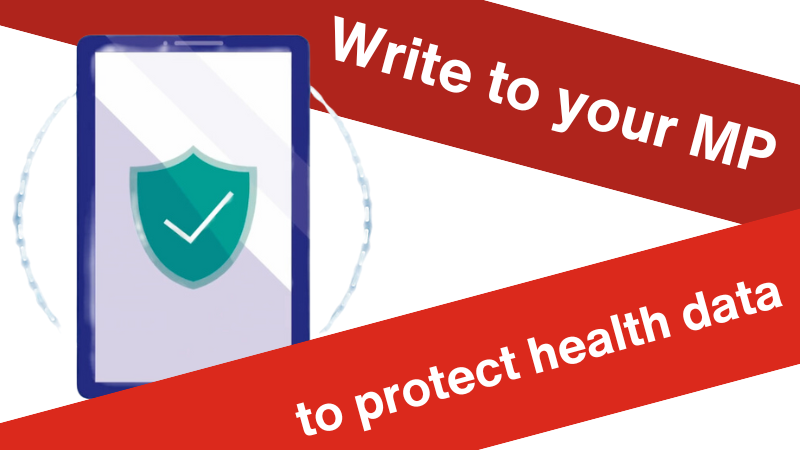Everyone deserves power and control over their personal information. One of the most common forms of discrimination experienced by people living with HIV is when their HIV status is shared without their consent – taking away that control. Unfortunately, we know that for some, this can lead to harassment, bullying and even violence. Settings we’ve commonly seen HIV status unlawfully shared include: employment, healthcare services, by the police and by people within one’s personal life.
We want to help protect the rights of people living with HIV to choose how, when and to whom they talk about their status - because we all deserve control over our personal health data. We need your help.
We now have an opportunity to influence the Data Protection and Digital Information Bill as it goes through the House of Commons. Creating new rules for how personal information can be used, this Bill is a huge opportunity to protect the rights and privacy of people living with HIV. But, if passed in its current form, the Bill could inadvertently allow unlawful sharing of health data and HIV status to continue.
National AIDS Trust is recommending amendments to:
- Add wording to clarify that employee’s personal data cannot be shared in the workplace by anyone not authorised to do so.
- Remove a clause which allows the police to access individuals’ personal data without justification.
- Amend wording to ensure the data protection laws and practices of other countries who may receive our personal data are reviewed annually. This should ensure that individuals' personal data shared overseas, including HIV status, is secure and will never be shared inappropriately or in a way which could put them at risk of harm in some countries.
- Require the Secretary of State to consult with the independent regulator when assessing the suitability of countries who receive personal data, such as HIV status.
Please, join us in asking MPs to support these amendments to protect all our personal health data and to ensure that people’s HIV status is never shared without consent.
National AIDS Trust Discrimination Advice and Support service regularly receives calls from people living with HIV whose status was shared without their consent. Many people living with HIV have found talking about their status to be empowering and beneficial for them, but this must always be a personal choice. While many people choose to talk about their HIV status, when choice and control is taken away, it can be hugely distressing for the individual, sometimes leading to discrimination, isolation and even harassment and violence.
The names below have been changed to protect their anonymity. In all these cases, the individual has had their information shared without their consent and input.
“It has caused me a lot of stress and pain… I had to bring a grievance against the colleague, and it has been a rollercoaster… People have different reasons to choose not to and every single reason is valid and should be respected and protected.”
Sarah
“How little did they realise a conversation could destroy an entire family.”
Christopher
“This has had a profound effect on my mental health and am still fighting to get this information removed from my GP record… I work offshore in the oil industry and work in countries where being positive would get me deported instantly or simply refused entry… At the moment I can only take jobs where I do not require anything from my GP to get a visa.”
Jim
“The information is out there with my name attached to it and there isn't anything I can about it. I feel it's out of my control and it worries me daily. I worry about myself, about my family and my friends. Some days it is too much to handle.”
Mariah
We need your help to capitalise on this opportunity to strengthen privacy rights and ensure that all people living with HIV have the power to control the information that is shared about them. Help protect our rights by emailing your MP now.
To access National AIDS Trust’s free Discrimination Advice and Support service, please contact us by phone on 020 7814 6740 or email casework.support@nat.org.uk

